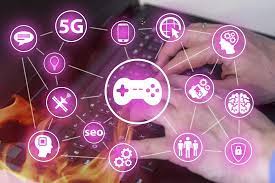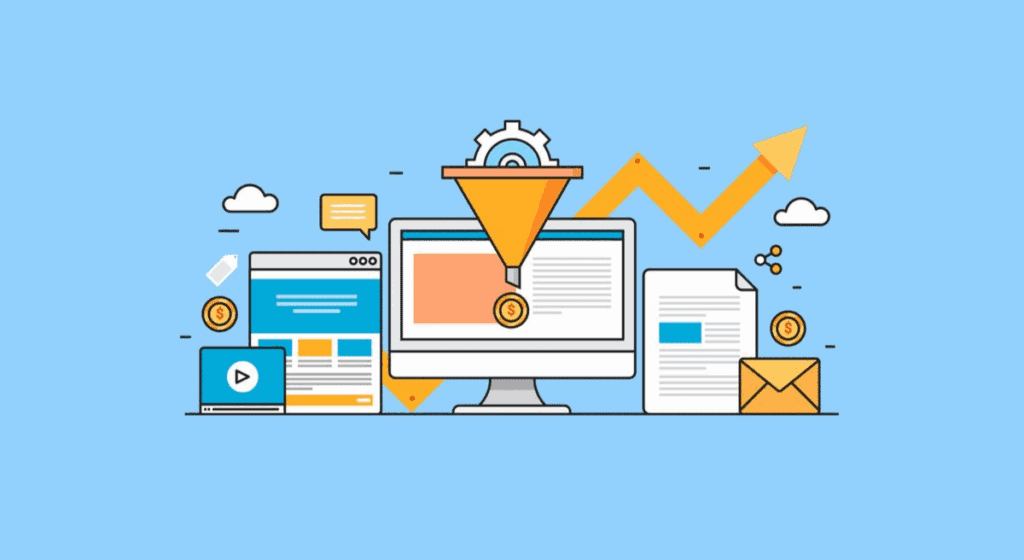In the digital era, participation is power. Crowdsourced platforms have revolutionized industries from transportation to hospitality. The real estate sector, long rooted in traditional systems, is now ripe for transformation, particularly the Multiple Listing Service (MLS). By gamifying user contributions to MLS data, platforms can unlock higher engagement, better data accuracy, and a more vibrant community of users.
Overview
Gamification uses game-like mechanics—points, badges, rankings—to incentivize behavior. In MLS systems, these elements can encourage agents, homeowners, and even prospective buyers to contribute meaningful data. This approach not only improves data quality but also fosters a competitive yet collaborative environment.
Real Estate Development World
Developers rely heavily on MLS data for feasibility studies and investment decisions. Accurate and current data supplied through gamified contributions can inform better site selection, market timing, and budget planning.
Private Real Estate Networks
In exclusive networks, gamified input systems can be used to maintain data freshness and encourage contributions within trusted circles. Verified users can be given leaderboards and recognition, enhancing status and participation.
Remote Real Estate Work
Gamification bridges geographic gaps. Remote agents and contributors can earn recognition for updating listings, correcting inaccuracies, or adding neighborhood insights, regardless of physical location.
The MLS Concept
MLS platforms traditionally serve as centralized databases for property listings. By integrating gamification, these systems evolve from static repositories to dynamic, user-engaged platforms with continuous content improvement.
Needed Training Courses
To fully utilize gamified MLS features, agents and administrators should receive training on digital engagement strategies, data quality principles, and ethical use of incentives.
Needed Certifications
Certifications in data governance and real estate technology, such as the e-PRO certification, prepare agents for working in environments where user interaction directly affects data integrity.
Onboarding Programs for New Agents
Gamification can be built into onboarding. New agents could earn their first badges by completing training, contributing their first listing, or verifying property details.
MLS Agent Onboarding Processes
Beyond technical skills, onboarding should highlight the gamified system’s mechanics, its purpose, and how it fosters trust and data accuracy. This ensures alignment with platform goals from day one.
MLS Platforms
Modern MLS platforms must integrate intuitive, rewarding user interfaces. Platforms like Bright MLS or CRMLS could introduce features such as community rankings, contribution streaks, and “data hero” badges.
Optimizing MLS
Gamification encourages consistent, high-quality contributions. Combined with moderation tools and machine learning validation, it helps optimize the MLS for accuracy, speed, and comprehensiveness.
Artificial Intelligence
AI can dynamically evaluate user contributions, flag inconsistencies, and automatically reward verified edits or uploads. It can also personalize challenges and achievements to keep users motivated.
Analytics
Gamification data—who contributes, how often, and what type of content—offers valuable insights into user behavior and platform engagement. These metrics inform design iterations and feature prioritization.
Economic Impact
Accurate listings reduce transaction time and costs, increase buyer satisfaction, and elevate trust in the platform. Gamification accelerates these benefits by motivating timely, useful data input.
Data Quality Management
Gamification enhances data quality by rewarding correct contributions and allowing users to flag incorrect or outdated information. Leaderboards for top editors can further push high standards.
Data Security Standards
With increased user activity comes increased risk. Gamified systems must uphold stringent data security through encrypted communication, user authentication, and audit logs for contributions.
Sustainable Development Data
By encouraging users to submit eco-related property data, like solar installations or LEED certifications, platforms can build a sustainability-rich data pool that aids green development decisions.
Gamifying User Contributions to MLS Data
The core innovation lies in enabling users to participate in MLS improvement through structured, rewarding systems:
- Point Systems: Earn points for submitting, updating, or verifying property details.
- Badges and Achievements: Recognize milestones like “100 properties verified” or “first neighborhood report.”
- Leaderboards: Showcase top contributors by region or category.
- Challenges: Monthly contests like “Most photos added” or “Best renovation update.”
Gamification not only motivates contributions but also fosters a sense of ownership and community among users. However, it must be balanced with moderation to ensure data reliability.

Personalization Features
User dashboards can highlight personal progress, recommended contribution opportunities based on past activity, and personalized badges. This encourages continued engagement.
User Experience Design
A successful gamified MLS system must blend functionality and fun. Intuitive navigation, visual progress tracking, and positive feedback loops create an enjoyable user experience.
Usability Testing
Testing across user segments—agents, homeowners, buyers—ensures that gamified features are accessible, non-intrusive, and genuinely effective at improving data contribution.
Fix and Flip
Flippers can earn rewards for documenting renovation work, before-and-after photos, and new valuation data. This enriches MLS listings and provides buyers with transparency.
Property Valuation Tools
Gamified contributions of property condition, upgrades, and neighborhood details refine automated valuation models (AVMs), making them more responsive and reliable.
Cross-Promotion Strategies in MLS
Gamification content—like “Agent of the Month” or “Top Neighborhood Contributor”—can be cross-promoted on social media and email campaigns to elevate brand visibility.
Avoiding Legal Trouble When Wholesaling Properties
Gamified systems must include disclaimers and guidance for legal compliance, especially around accurate property status representation in wholesaling scenarios.
Leads – Integrating Digital Marketing
Gamified user achievements can be incorporated into marketing tools, helping agents build credibility and attract leads through their verified engagement and expertise.
Machine Learning Models
Machine learning can fine-tune the gamified system by identifying user preferences, predicting drop-off points, and suggesting re-engagement tactics based on behavioral patterns.
Renewable Energy Integration
Users could receive badges for adding renewable energy features to listings or verifying such installations, helping promote green living and influencing buyer decisions.
Process Improvement
Gamification streamlines content contribution and quality control, reducing dependency on manual updates and fostering a self-sustaining data ecosystem.
Innovation Hubs
Urban innovation zones can serve as testbeds for gamified MLS systems, providing feedback and validation before broader rollout. Cities with high tech adoption, like San Francisco or Denver, are ideal candidates.
Review and Reputation Systems
Gamification can integrate with peer review and trust scoring systems, allowing high-ranking contributors to gain additional privileges or influence.
Venture Capital Investments
MLS startups with gamified models attract VC interest by combining real estate, tech, and community-building, offering scalability and user retention as core value propositions.
Business Model Innovation
Monetization could include premium access for top contributors, branded challenges sponsored by real estate firms, or unlockable tools for gamified achievements.
Market Trend Predictive Modeling
User-submitted data fuels trend analysis—emerging hot zones, renovation booms, or eco-friendly property trends—providing real-time market intelligence.
Operational Efficiency Solutions
By decentralizing content generation, gamification reduces back-office workload and shortens the update cycle, improving MLS responsiveness and scalability.
Professional Development
Gamification supports agent development by tracking learning goals, participation levels, and contribution accuracy, all of which can be linked to continuing education credits.
Frequently Asked Questions
Who can contribute data in a gamified MLS system?
Agents, homeowners, buyers, and verified users can all participate based on permission levels.
How do platforms prevent spam or false contributions?
Through AI moderation, peer review, and human oversight. Verified contributors earn trust scores over time.
What are the rewards for contributing?
Points, badges, leaderboard status, and potentially premium platform access or marketing boosts.
Is gamification mandatory?
No. It’s optional but highly encouraged to enhance platform engagement and data quality.
Gamifying user contributions to MLS data represents a transformative opportunity for the real estate industry. It turns passive viewers into active participants, builds a culture of collaboration, and vastly improves the depth and accuracy of listing data. While implementation must address moderation, user motivation, and legal compliance, the long-term benefits—greater engagement, faster updates, and a dynamic data ecosystem—make it a compelling strategy for MLS platforms. As the industry continues to evolve, gamification may well become the standard for digital real estate engagement.













